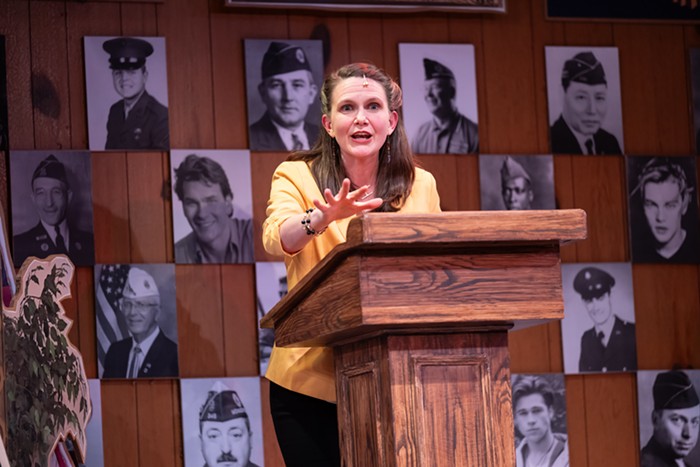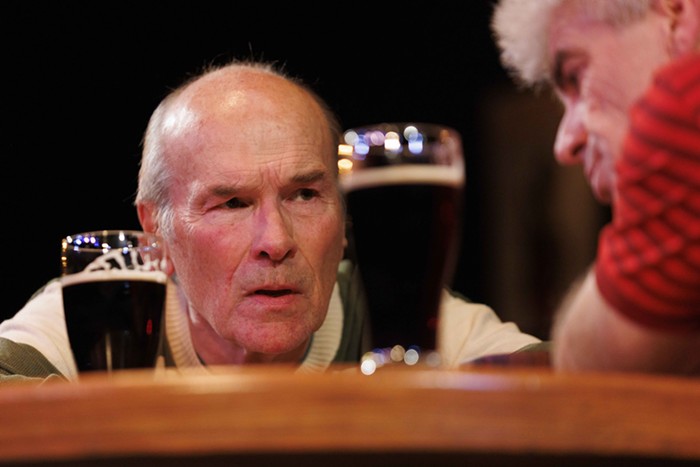Stark Raving is onto something with their late-night production of Happy Hour. The one-woman show is short but sweet, an offbeat alternative to the standard late-night entertainment options of music, movies, and binge drinking.
Written and performed by Rebecca Frost Mayer, the semi-autobiographical show follows Boston bartender Rebecca's attempt to come to terms with the alcoholism that runs rampant in her family. When she finds out that her younger brother is losing control of his own drinking, she heads to Portland to intervene, meeting an assortment of wacky characters on the Amtrak before landing in P-Town. From there, she journeys south to the Mexican border, where she confronts the source of her family's misery: her boozehound dad.
The first few minutes of Happy are a bit confusing, as Mayer supplies no helpful costume or set clues to provide where she is and what character she's inhabiting; but after the first few minutes, the hodgepodge of impersonations resolves itself into a few recognizable characters. The piece started as Mayer's thesis project, and it certainly has a showcase-y feel, as she juggles multiple diverse roles in a script of her own composition. While she doesn't quite have the chops to nail all of the characters herself (she's an utterly improbable teenage boy, for one), she gets a few of them note-perfect: As Rebecca, she's a sassy and endearing heroine, and she milks her mother's overbearing whine to good comedic effect.
Mayer's writing is insightful and witty, and while the plot is contrived, she also does an admirable job of capturing an alcoholic's all-consuming obsession with booze. Rebecca can't stop talking about alcohol; what's she's drinking, how much, how it makes her feel. This preoccupation holds the piece together more strongly than any hackneyed quest narrative, and it's fascinating to watch her follow this thread across the country.
While by no means an anti-booze missive, Happy Hour will certainly provoke interest and recognition in anyone who's ever dealt with alcoholism or treatment programs. And hey, at $10 a ticket, it's cheaper than going to the bar. ALISON HALLETT


















